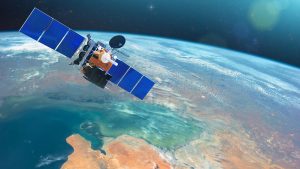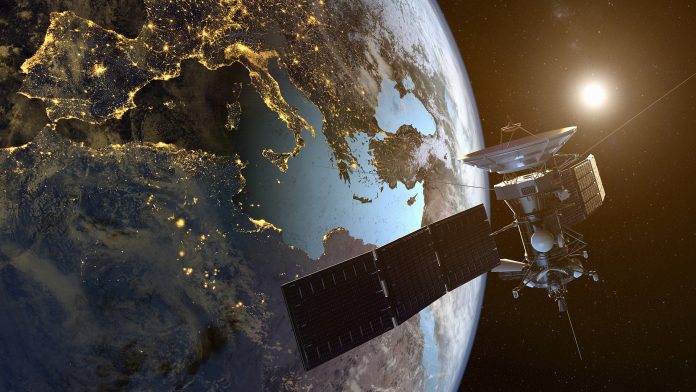With the UK Government recently announcing a substantial £1.84 billion in funding to support the Earth Observation sector, we take a look at how this investment will enrich the UK space industry.
The UK is a founding member of the European Space Agency (ESA), which is independent of the EU and has outlined plans in the National Space Strategy to position the country at the pinnacle of Earth observation technology innovation. The UK space sector currently supports more than 47,000 jobs and generates £16.5bn annually. However, progress has been halted due to continued delays from the EU in agreeing to the UK’s involvement in EU research programmes, such as the Copernicus Earth observation programme. To combat the volatility surrounding the Earth observation sector and reinforce the UK’s position as a global leader in space technology, the UK Government has announced a £1.84bn package that will enable its space industry to collaborate with ESA on globally important programmes.
UK support for the Earth observation sector
The UK’s Science, Research & Innovation Minister, George Freeman, announced the sizeable investment at this year’s European Space Agency Council of Ministers meeting in Paris. Freeman led the negotiations alongside the UK Space Agency, securing record commitments to grow the country’s space sector and deliver on National Space Strategy targets, building on previous investments made in 2019.
The groundbreaking deal includes the following:
- A £315m investment in Earth observation and climate programmes. This 45% increase from 2019 was made available due to funds set aside for participation in Copernicus to support the sector while the EU programme association continues to be delayed;
- ESA’s commitment to the UK-developed Rosalind Franklin Mars Rover, which is planned to launch to Mars in 2028, with the UK playing a pivotal role in designing a new landing platform;
- UK leadership in space sustainability via satellite management, maintenance, and retrieval, supporting national goals of leading space sustainability regulation and innovation globally;
- Increasing UK involvement in commercially-focused programmes, such as communications and navigation, elevating innovation in the satellite industry;
- UK leadership in the Vigil space weather mission. Vigil will travel to L5 – a point in deep space – to provide early warning of dangerous solar storms. The project will advance observational capabilities and support expertise provided by the UK Met Office’s Space Weather Operations Centre; and
- Allow the UK to set the standards for satellite climate measurements with funding secured for further development of the TRUTHS mission.

George Freeman commented on the developments: “The rapidly growing global commercial space sector is driving a new space race for geopolitical and commercial soft-power. This is the frontline of our science superpower mission.
“Space is a fundamentally collaborative endeavour, so the European Space Agency Council of Ministers was an important opportunity to deepen our international relationships to advance space technology for the benefit of all.
“I am delighted to return from the meeting with such a strong package of commitments, as well as being able to provide support for our outstanding Earth observation sector to protect it from the uncertainty caused as a result of the EU’s delays, as we continue seeking Copernicus association.
“These new investments will support the ongoing growth of the UK space and commercial satellite sector – creating new jobs around the UK from Cornwall to the North of Scotland – and securing UK leadership in space sustainability. They will put our scientists and engineers at the forefront of some of the world’s most important missions and programmes which drive transformational innovation.”
Providing opportunities for UK space companies
As part of the funding, the UK has committed £615m to ESA’s core space science budget. This will allow UK companies to bid for high-value contracts and acquire scientific leadership roles for UK universities.
The funding will be invested in the space sector in the following ways:
- £217m for the global exploration programme, which supports robotic missions to Mars, the Artemis Moon programme, including the Argonaut (European Large Logistics Lander), Gateway space station, and commercial lunar communications systems;
- £206m for telecommunications programmes to pioneer faster 5G and future 6G connectivity, design new optical and quantum communications systems, and support Low Earth Orbit satellites;
- £111m to improve space safety and security, advancing forecasting technology to combat space weather and mitigating the growing issue of space debris; and
- £71m to back new technologies, allowing small businesses to cultivate new ideas and products, reducing the UK’s dependence on out-sourcing to non-European nations for electrical components. It will also aid the development of space-based solar power and radioisotope heat and power systems from nuclear waste to fuel the next generation of space missions.
The UK’s investments in ESA’s projects solidify its position as an Earth observation technology and expertise leader. The funding will be used for projects such as Aeolus-2, ESA Digital Twin Earth, InCubed-2, TRUTHS, and FutureEO. An additional £30m will be spent on advancing satellite navigation and £13m to support commercial spaceflight.

Speaking on the landmark funding, Dr Paul Bate, the CEO of the UK Space Agency, concluded: “From protecting our planet to exploring new worlds, we invest in these programmes because they benefit humanity and deliver a strong return to the UK economy.
“Our membership in ESA adds significant firepower to our national space ambitions, complementing the UK Space Agency’s work to catalyse investment, deliver new missions and capabilities, and champion the power of space for businesses and people across the country.
“Taken together, this represents the most ambitious and comprehensive package of investments with ESA ever. This comes following the recent fiscal statement, in which the Chancellor pledged to maintain the UK’s commitment to increasing R&D investment to £20bn per year from 2024 to 2025.”
Please note, this article will also appear in the twelfth edition of our quarterly publication.









